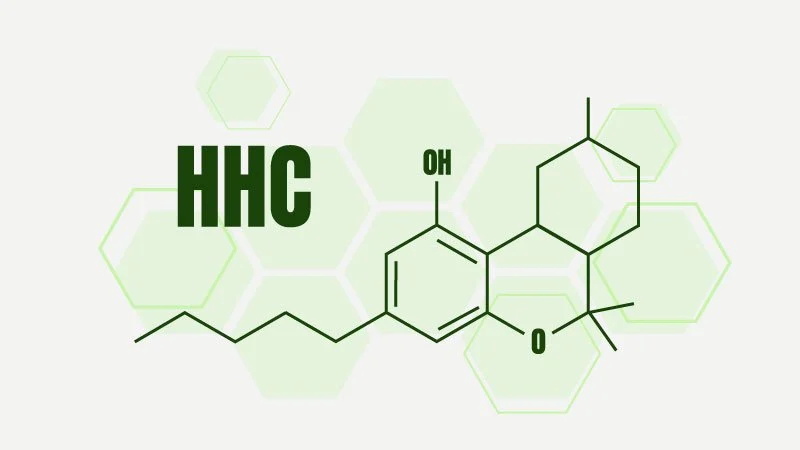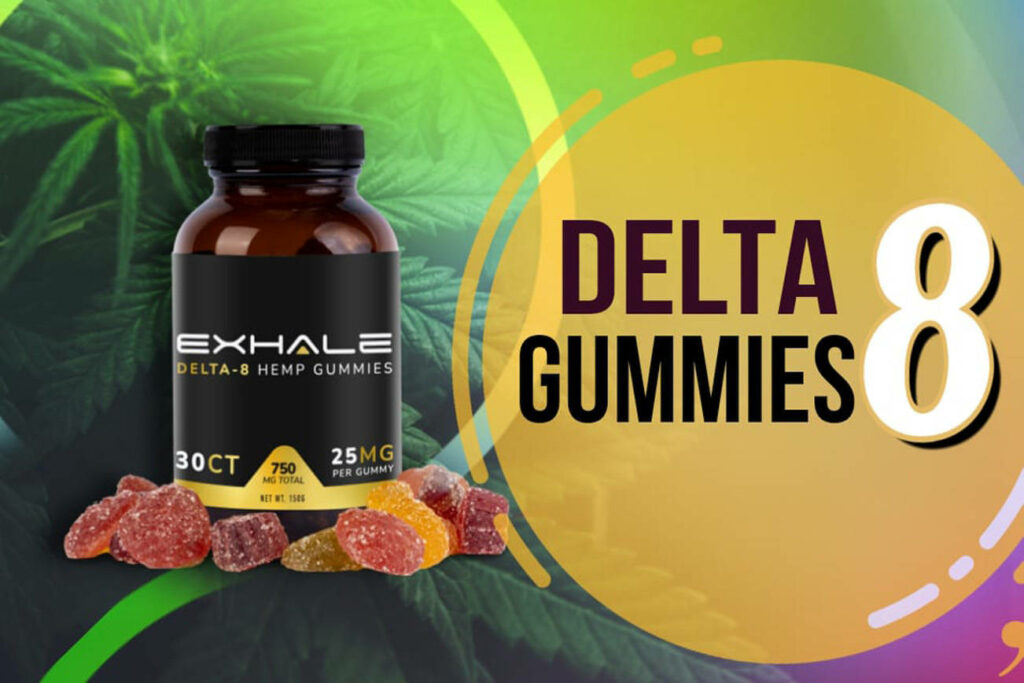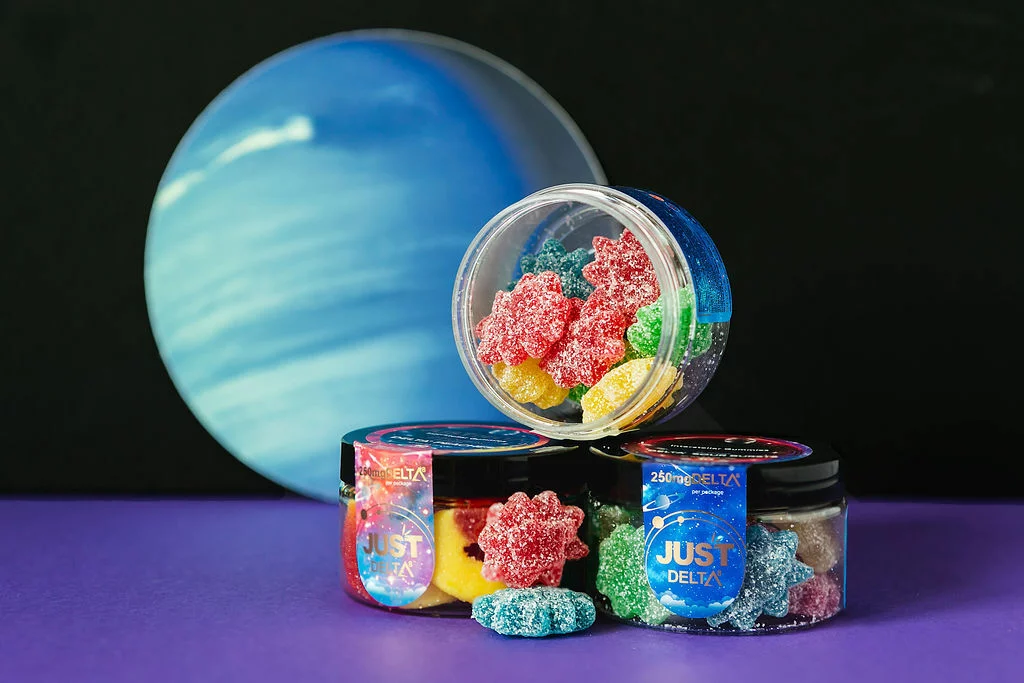Tetrahydrocannabinol (THC) and hexahydrocannabinol (HHC) have the same molecular structure. However, HHC has more hydrogenated carbons than THC. Proceed with this blog to understand more comparisons between THC and HHC.
Hexahydrocannabinol (HHC) is a hydrogenated version of tetrahydrocannabinol (THC) in hemp and cannabis herb strains. HHC is approximately 70-80% of the THC potency. This implies that HHC has greater potency than other hemp-sourced cannabinoids Delta-10 and Delta-8. Moderate HHC doses prompt euphoric and psychoactive effects identical corresponding to THC. However, it has more sedative and relaxing qualities than delta 8. Kumer et al. (2019) noted that THC and CBD have similar molecular structures. The major distinction is that HHC contains extra-hydrogenated carbons while THC has no carbon bond and an ester atom. Keep getting comparisons between THC and HHC through reading this blog.
Differences
Definition
Hexahydrocannabinol (HHC)
HHC is a cannabinoid compound that occurs naturally in hemp plants but in small concentrations. Refined processes are performed to saturate tetrahydrocannabinol with hydrogen. This is achieved by conducting it in the presence of elevated pressure and catalyst, including palladium and nickel, to acquire a substantial amount. Consequently, tetrahydrocannabinol’s double bonds are broken and replaced with hydrogen. However, the cannabinoid’s potency and impacts remain unaffected. Harvey et al. (1980) showed that approximately ten isomers of hydrogenated THC are formed. This miniature fluctuation escalates tetrahydrocannabinol’s binding affinity for CB2 and CB1endocannabinoid and TRP pain receptors. The fluctuation in tetrahydrocannabinol’s chemical structures also converts it into a more stable version. THC is vulnerable to degradation and oxidation in its natural state. When oxidized, tetrahydrocannabinol discharges hydrogen atoms, thus developing two novel double bonds. Cannabinol (CBN)’s subsequent product comprises nearly 10% of tetrahydrocannabinol\’s psychoactive potency. Nevertheless, HHC does not reduce its strength even when subjected to air. Furthermore, it is UV light and heat resistant, making it an exceptional cannabinoid alternative for post-apocalyptic preppers.
Tetrahydrocannabinol (THC)
THC is a major cannabinoid compound in cannabis (marijuana) and hemp plants. Usually, hemp plants contain minimal THC amounts, specifically 0.3% or below, while marijuana has high THC contents. Consumption of high THC amounts produces a psychoactive and delivers a high feeling to the consumer. Although it fights THC effects, its chemical structure resembles cannabidiol (CBD). In addition, THC functions the same as anandamide (a natural chemical generated in the human brain) in structure by changing the communication protocols. Tetrahydrocannabinol binds to neurons rather than standard brain communication through neurons, thus altering the process. Medical providers reported that THC affects coordination, concentration, movements, memory, thinking, pleasure, time, and sensory perception. In this regard, driving or operating heavy machinery under drug influence is dangerous. However, THC has several therapeutic benefits.
Manufacturing Process
THC and HHC
HHC is a hydrogenated THC version. Most people consider it bondless because the bond is absent in the chemical structure. This structure also resembles cannabinol (CBN), an alternative molecule. This structure is achieved by breaking THC and adding double bonds. Regarding HHC, all double bonds are broken and substituted with hydrogen through hydrogenation.
Furthermore, the distinction between THC and HHC is more stable in connection. However, some geometric fluctuations in molecules are observed. The CB2 and CB1 are found in the endocannabinoid system (ECS), and TRP pain receptors extract a binding affinity having the molecular HHC alteration. However, the stable link explains that hexahydrocannabinol offers a longer storage life and cannot lose its strength. This is contrary to other THC formulations. The hydrogenation process is responsible for this because this oil persists longer than others. In addition, this process cannot lose its oxidation and therefore becomes weaker to break down. Moreover, Rymanowski (2014) commented that No Cap Hemp Co THC Vapes tetrahydrocannabinol has the highest demand and is the source of other cannabinoid forms. However, its stability is the weakest among its counterparts. In this regard, THC gets oxidized, thus losing its hydrogen atoms. Consequently, two new bonds develop in that molecular structure. For this reason, it becomes a cannabinol (CBN), with 10 percent being psychoactive compounds.
Does HHC Generate Analogous Effects to Delta 9 Tetrahydrocannabinol?
Although the HHC cannabinoid compound is new and few studies have been conducted in any instance, it generates similar effects to other THC forms. This includes stimulation, euphoria, cognition fluctuations, relaxation, changes in body temperature, heart rate, auditory perception, and visual. HHC has lesser power than delta 9 THC, although more strong than No Cap Hemp Co THC Flower. This implies the effects are related to delta 8 THC, which indicates that scientists research more concerning relief and relaxation than stimulation. Furthermore, Erickson & Arbour (2014) mentioned that HHC products show positive impacts on sleep, appetite, anxiety, and inflammation.
Are HHC and THC Legal?
There are certain legal gray aspects when dealing with strains of delta 9 THC. They consider whether the compounds are occurring naturally and their occurrence volume. When dealing with HHC products, the authorization is dubious. This compound exists naturally in small quantities, but substantial amounts would perhaps require manufacturing in the laboratory for notable effects. The 2018 Farm Bill stated that only hemp plants containing 0.3% or below delta 9 tetrahydrocannabinol are federally lawful. Consequently, delta 8 products are highly popular though many states prohibit their utilization. HHC is classified into this authorized escape as delta 8. Provided the products that comply with rules and regulations concerning delta 9 restrictions, they are legal unless stated otherwise.
Does Blood or Urine Contain HHC and THC?
Many drug panels examine delta 9 THC, CBD Sweets particularly 11-hydroxy-tetrahydrocannabinol, the metabolite resulting from THC ingestion. Though Delta 8 produces positive outcomes on blood and urine tests, HHC will not metabolize similarly since its chemical structure is altered.
Conclusion
HHC is a cannabinoid compound that occurs naturally in hemp plants but in small concentrations. THC is a major active cannabinoid compound in cannabis (marijuana) and hemp plants. Hemp has 0.3% or below THC amounts, while marijuana has high THC contents. HHC is also manufactured by hydrogenating THC, where the double bonds are broken to create a vacancy for hydrogen. As a result, a more stable product is produced, which experts report being HHC. These two compounds have similarities and differences. Some HHC and THC side effects include stimulation, euphoria, cognition fluctuations, relaxation, and changes in body temperature. Therefore, know their differences before purchasing them.
References
Erickson, A. C., & Arbour, L. (2014). The Shared Pathoetiological Effects Of Particulate Air Pollution And The Social Environment On Fetal-Placental Development. Journal Of Environmental And Public Health, 2014.
Harvey, D. J., Gill, E. W., Slater, M., & Paton, W. D. (1980). Identification Of The In Vivo Liver Metabolites Of (–)-Delta 7-Tetrahydrocannabinol Produced By The Mouse. Drug Metabolism And Disposition, 8(6), 439-445.
Kumer, A., Sarker, N., Paul, S., & Zannat, A. (2019). The Theoretical Prediction Of Thermophysical Properties, HOMO, LUMO, QSAR, And Biological Indices Of Cannabinoids (CBD) And Tetrahydrocannabinol (THC) By Computational Chemistry. Advanced Journal Of Chemistry-Section A, 2(3), 190-202.
Rymanowski, M. (2014). Cannabis-Review Of The Issues Related To Determination Of The Total-Content Of Delta-9-Tetrahydrocannabinol ()-9-THC) And Delta-9-Tetrahydrocannabinolic Acid ()-9-THCA-A). Problemy Kryminalistyki, 285(3), 1-22.
- What is the Difference Between Delta-8 And Delta-9? - November 25, 2022
- What is HHC? - November 25, 2022
- What is HHC, and How Does it Compare to THC? - November 25, 2022





